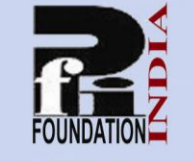/regions/kamrup-district
Kamrup District
Training workshop on understanding and resolving water conflicts In the North East India, January 23-26, 2012, Guwahati, Assam
Posted on 04 Jan, 2012 01:48 PM Organizer: Forum for Policy Dialogue,
Aaranyak (Guwahati),
Centre for the Environment, IIT ( Guwahati),
Arghyam (Bangalore),
SaciWATERs-CapNet Network (SCaN),
Cap-Net
Venue: Guwahati, Assam
Workshop on 'Water Conflicts in the North East: Issues, Cases and Way Forward', Forum for Policy Dialogue on Water Conflicts in India, Guwahati
Posted on 07 Dec, 2010 10:44 AM Organizer: Forum for Policy Dialogue on Water Conflicts in India
Organizer: Forum for Policy Dialogue on Water Conflicts in India
Environmental Pollution and Management - A Civil Engineering Course under the National Programme on Technology Enhanced Learning
Posted on 13 Oct, 2010 10:32 PMThis Civil Engineering Course under the National Programme on Technology Enhanced Learning (NPTEL) on the broad subject of Environmental Pollution and Management is being carried out by Indian Institute of Technology’s and the Indian Institute of Science, Bangalore as a collaborative project supported by the Ministry of Human Resource Development (Government of India) to enhance the quality of engineering education in the country, by developing curriculum based video and web courses. In these web based lectures, the authors have developed the subject in detail and in stages in a student-friendly manner. The broad group of Environmental Pollution and Management is structured into modules on the following topics:
PFI Foundation is organising an International Conference WATERCON 2011, on Community based Water Resource Management in Northeast, January 28-30,2011 in Assam
Posted on 11 Oct, 2010 04:28 PM
Organizer: PFI Foundation
Venue: Guwahati, Assam
Groundwater quality monitoring and evaluation in and around Greater Guwahati – A research report by National Institute of Hydrology
Posted on 30 Jun, 2010 07:25 PMThe study deals with the detection of trace elements – Cu, Co, Cd, Zn, Fe, Mn, Ni and Pb along with pH and ORP in the groundwater of Guwahati and its adjacent areas. Toxicity of a metal depends on its concentration, which adversely affects any biological activity. Almost all the metals are toxic at higher concentrations, few in low concentrations and few others even in trace like As, Pb, Hg, Cd etc. The presence of such metals in groundwater is a subject of concern. Groundwater that contains higher amount of metals affects public health to a great extent when it is used for drinking and domestic purposes.
Groundwater quality monitoring and evaluation in and around Greater Guwahati - A research report by National Institute of Hydrology
Posted on 29 Jun, 2010 11:05 AMIn this study, groundwater quality monitoring and evaluation of Greater Guwahati is presented based on the physico-chemical characteristics of thirty samples collected on grid pattern. The various parameters analyzed include pH, electrical conductivity, temperature, Dissolved Oxygen (DO), Total Dissolved Solids (TDS), alkalinity, hardness, Na+, K+, CA++, Mg++, NO3-, SO4--, Cl- and F-. The results were compared with water quality standards prescribed by BIS and WHO.
Preliminary hydrological investigations for Deepar Beel and strategies for its monitoring and management - A research report by National Institute of Hydrology
Posted on 23 Jun, 2010 07:30 PMThe study presents a preliminary hydrological investigation of the Deepar Beel, a natural freshwater lake near Guwahati, and notes the theoretical aspects of the techniques to be used, methodologies and instruments for conducting a detailed study of the natural processes at hand.
Deepar Beel acts as a natural stormwater reservoir during monsoon period and is greatly influenced by the rapid urbanization and improper land use pattern of Guwahati. It receives a large portion of sewage of the city, but the preliminary investigations reveal that the Beel is largely free from significant levels of pollution. This is due to the dilution effects of large storm water runoff during monsoons as also the release of the Beel water to river Brahmaputra through the Khanajun outlet. Yet, the soil quality is found to have deteriorated to a large extent.
Various parameters of soil and water quality indicate that the process of eutrophication is in progress in this wetland. Although many trace elements are present in the Beel sediments, no known toxic effects are observed on aquatic life. Increasing sedimentation and reduction in lake water capacity and inflow are also observed.
Groundwater quality in Greater Guwahati with respect to trace elements - A research report by the National Institute of Hydrology
Posted on 22 Jun, 2010 08:08 AMThe study on groundwater quality of Greater Guwahati analyses various trace elements in samples and ascertains that their concentration is much higher than the tolerance limit prescribed for drinking water. The trace element analysis focuses on metals such as Cu, Co, Cd, Fe, Zn and Pb.
Owing to the inadequacies of piped water supply, the Greater Guwahati area depends on groundwater from ringwells and tubewells for drinking purposes. Groundwater is mostly polluted from the effluents discharged by industries on land, seepage from sewage lines & tanks and application of pesticides on agricultural land. Due to the low flow velocity, groundwater once contaminated will remain so for longer periods. Metals assume significance because of their greater toxicity, accumulative and non-biodegradable behavior.
Approach and achievements of individual water management by Dr Choudhury of Guwahati
Posted on 18 Jun, 2010 10:07 PMIn the recent past, Dr. Dipul Choudhury from Guwahati (Assam), managed to ensure rainwater harvesting arrangements in his newly constructed multistoried building at Tarun Nagar, Guwahati (Assam).
Guwahati college of architecture receives second prize for presenting integrated water management in college campus
Posted on 09 Jun, 2009 12:18 PMCurrently the college has a daily water consumption of 17.8KL and inadequate supply. The design integrates water conserving devices such as waterless urinals and eco-san toilets with grey and black water treatment systems and rainwater harvesting.